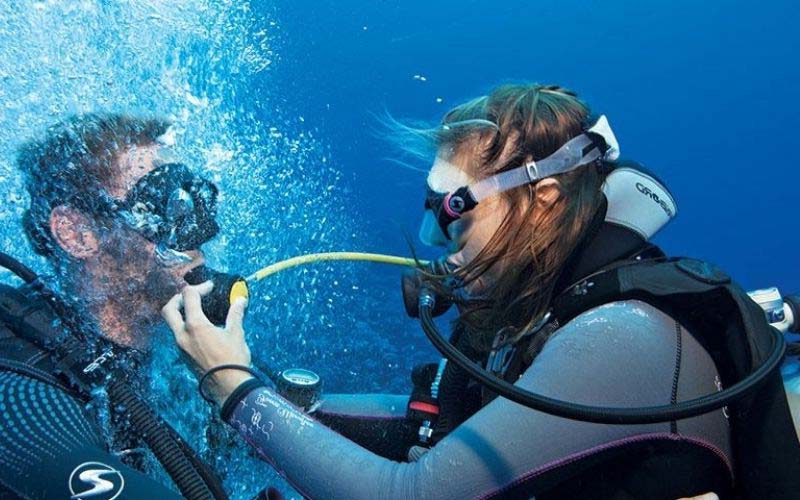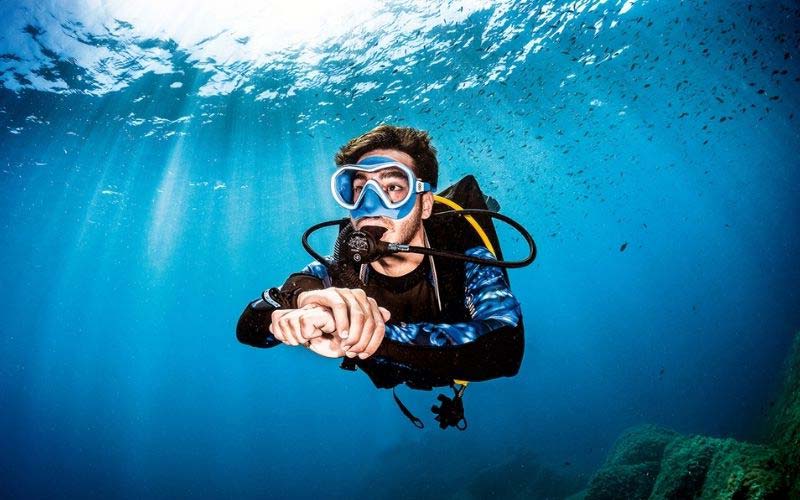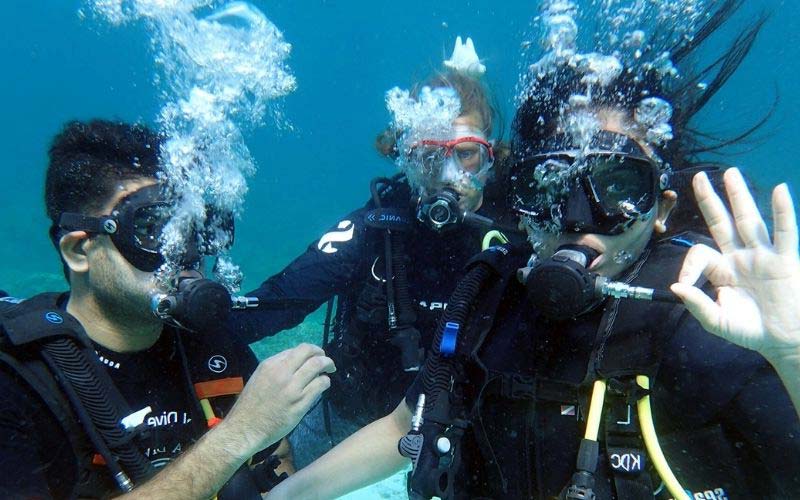8 Tips to Reduce Air Consumption While Diving

If you are an inexperienced diver, you may have been frustrated because you ran out of air before the rest of your buddies while diving.
It is true that this is something that can happen to anyone, but there are some keys that will allow you to be more autonomous.
What are they? In this article we will give you the best tips on how to reduce your air consumption while diving. If you apply them, you will see the results in a more efficient use of available resources.
1º Check and prepare your equipment before entering the water.
It is vital that your equipment is in top condition, hence you need to check it before entering the water.
Check that your equipment is not bubbling or hissing, as this may cause you to lose more air than necessary.
While it is natural for small leaks to occur and not result in additional breaths, large air leaks can put the contents of your tank at risk, using up air faster. So pay particular attention to these.
2nd Get in shape
When our body is out of shape, we take short, shallower breaths, reducing the air flowing into our bloodstream.
Therefore, it is advisable to do cardiovascular exercise and eat healthy, as this will significantly improve your breathing and air consumption.
By being fit, the body is able to do any activity more efficiently, which makes it possible for us to take deeper breaths.
If you train 30 minutes a day doing aerobic or any other exercise, it will help you to control your breathing rate and if you lose fat you will be more agile underwater.

3º Maintain Neutral Buoyancy
Did you know that neutral buoyancy is key to using less air underwater? What does this mean?
That when you reach your destination at depth, you stay put, which will allow you to avoid changes and efforts that increase your air consumption.
If you are not neutral, you will not be able to glide on every fin and you will not reduce the resistance exerted by the water. Learning neutral buoyancy should be a priority for every diver, the more you focus on it, the better you will become.
4º Learn to Breathe while Diving
The most important rule of diving is to never stop breathing, keep the airways open to avoid lung over-expansion, just keep breathing slowly and calmly.
Therefore, taking long, deep breaths will allow more air to circulate in the lungs and blood.
On the other hand, breathe slowly, this way you will renew the air in your lungs better and you will take fewer breaths, saving the air you are holding. How is this achieved?
Practising abdominal breathing, in which you should make sure that your chest does not move when you inhale, but your stomach does, so that you consume less air when you dive.

5th Nothing at the Right Pace
The faster you swim when diving, the more air you will use. Therefore, it is essential to slow down and minimise your movements, which will reduce the effort and air consumption.
6 Keep your Body in a Horizontal Position
Adopting a horizontal position when swimming, i.e. keeping the whole body in the same upright posture, will allow the legs and feet to follow the same path through the water as the head and torso.
The benefit of this is that you will use less energy and air, which will give you more air.
7º Rest before Diving
Diving after a night out or a very tiring day can mean a higher demand for air because the body will have to work harder to replenish the load.
So make sure you are rested and do not consume alcohol before you start your underwater activity.
8º Relax and Enjoy
It is true that going out diving with several buddies will keep you concerned about who is using more or less air, because this is usually associated with skill and expertise.
However, we advise you not to worry, to stay calm at all times, to remember that we are all different and to simply enjoy diving in Lanzarote.
Keep in mind that worrying about not using up scuba tanks faster will only make you more stressed, and the more stressed you get, the more your air consumption will increase.

